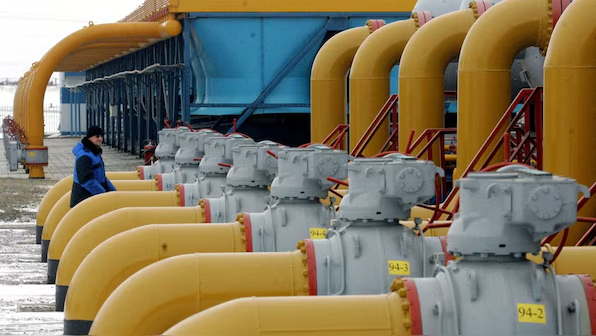Gas prices in Europe have risen sharply following Russia’s announcement that repairing the Sudzha gas station, a key transit point for Russian gas to Europe, will take a considerable amount of time. The facility, which remained operational until January 1, 2024, is currently out of service, exacerbating concerns over energy supplies in the region.
The situation took a dramatic turn last Friday (March 21) when Ukraine’s military reported a successful strike on Russia’s Kursk region, where the gas transport system is located. Ukrainian forces, who have been facing intense pressure for months following a cross-border offensive, claim that Russian forces deliberately destroyed the station to mislead the international community.
A statement from Ukraine’s military Telegram channel read: “Media are reporting a successful strike on the Sudzha gas transport system through which the enemy used to transport gas to Europe.” Meanwhile, Russia has not provided a timeline for when the gas flow through the station might resume, adding to market uncertainty.
The disruption has already impacted European energy markets. On Thursday (March 27), the Wall Street Journal reported that the benchmark Dutch TTF contract rose 0.5% to 41.10 euros per megawatt-hour in early trading. This followed a brief decline in the previous session as investors monitored Black Sea ceasefire talks, which had initially raised hopes for market stabilization.
The latest developments highlight the fragility of Europe’s energy security, with geopolitical tensions continuing to influence supply chains and fuel costs. As uncertainty lingers over the fate of the Sudzha station, gas prices are expected to remain volatile in the coming weeks.
For more news subscribe to questeuro.com

More Stories
Public Debt and Trade Tensions Weaken UK Economic Growth, OECD Says
Greenpeace Relocates Macron’s Wax Statue in Protest, Symbolic Strike Against France’s Russian Ties and Climate Contradictions
Swedish Journalist Joakim Medin Freed from Turkish Detention, Returns Home